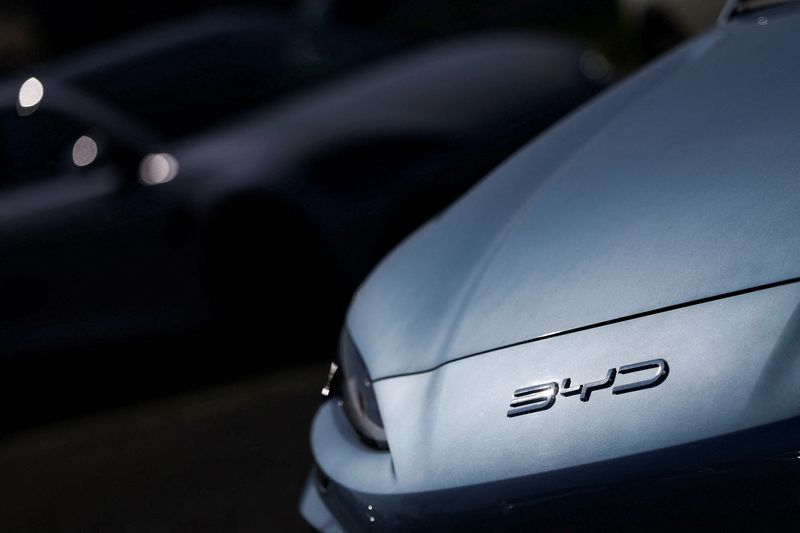BYD shifts away from in-house payment system that strained suppliers, sources say
(Reuters) -China’s BYD has told some suppliers it wants to stop using in-house financial notes to pay them, people briefed on the matter said – a seismic shift away from a practice that helped power its rise but has been criticised for disadvantaging its parts makers.
BYD, one of the world’s biggest electric vehicle makers, now wants to use commercial paper or bank notes to pay suppliers rather than promissory notes issued on Dilian, an electronic platform it launched in 2018, the people said.
Reuters was unable to learn the scope of the shift and the sources, who declined to be named due to the sensitivity of the topic, did not provide a reason for the change.
But a brutal price war in the Chinese auto industry has battered parts suppliers who have complained about increasingly long periods before being paid and pressure from automakers to cut prices. That in turn has prompted authorities to issue new rules that seek to greatly shorten payment times and improve industry practices.
DILIAN NOT DIRECTLY REGULATED
China-focused Auto Business Review also reported last week that BYD has, over the past two weeks, started to move away from Dilian notes to bank notes or commercial paper.
BYD said in a statement to Reuters that its Dilian system falls within regulatory guidelines and it has sped up payments to suppliers this year, but it did not address queries about the move away from in-house notes. Banks that partner with BYD did not respond to requests for comment.
China’s central bank, which regulates commercial paper and bank notes, declined to comment.
With Dilian – whose Chinese name means “BYD supply chain” – BYD issues electronic IOUs, whereas other automakers in China generally use commercial paper, bank notes or cash, according to sources.
Sources say that compared to commercial paper or bank notes, Dilian IOUs are not directly regulated by authorities and are perceived to carry a higher default risk. Cashing them in earlier than the set payment date can often cost more than bank notes.
Dilian has helped BYD keep a tight lid on costs, and the automaker, which sells the vast majority of its cars in China, has managed to roll out new models at a dizzying pace.
Analysts say the system allows the automaker to keep a large pile of cash on hand, meaning it does not need to rely much on other external sources of funding, which reduces its working capital costs. A shift away from Dilian could prove to be a headache for BYD at a time when sales are slowing, profits have fallen and it is planning to invest heavily overseas.



Leave a Comment
Your email address will not be published. Required fields are marked *